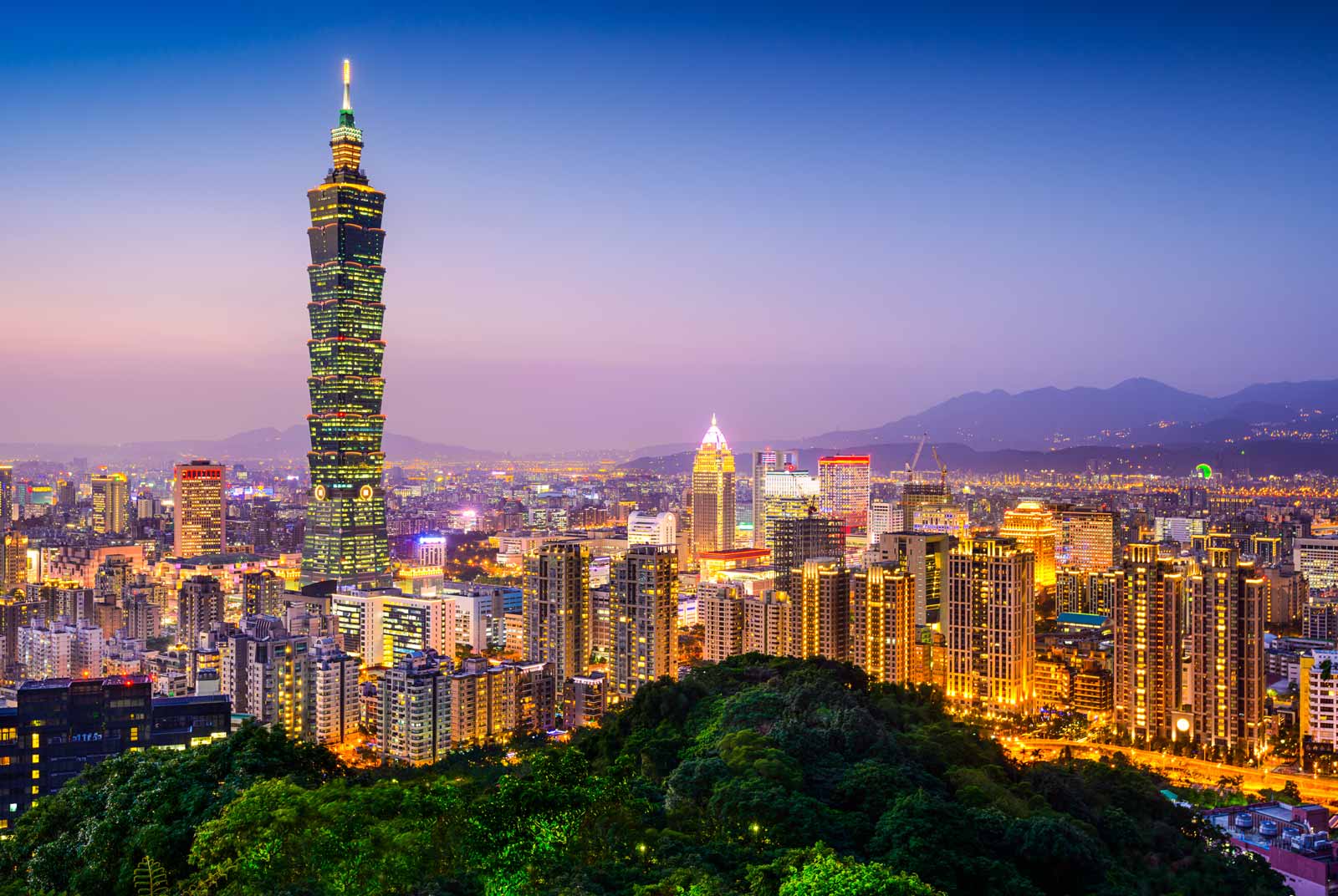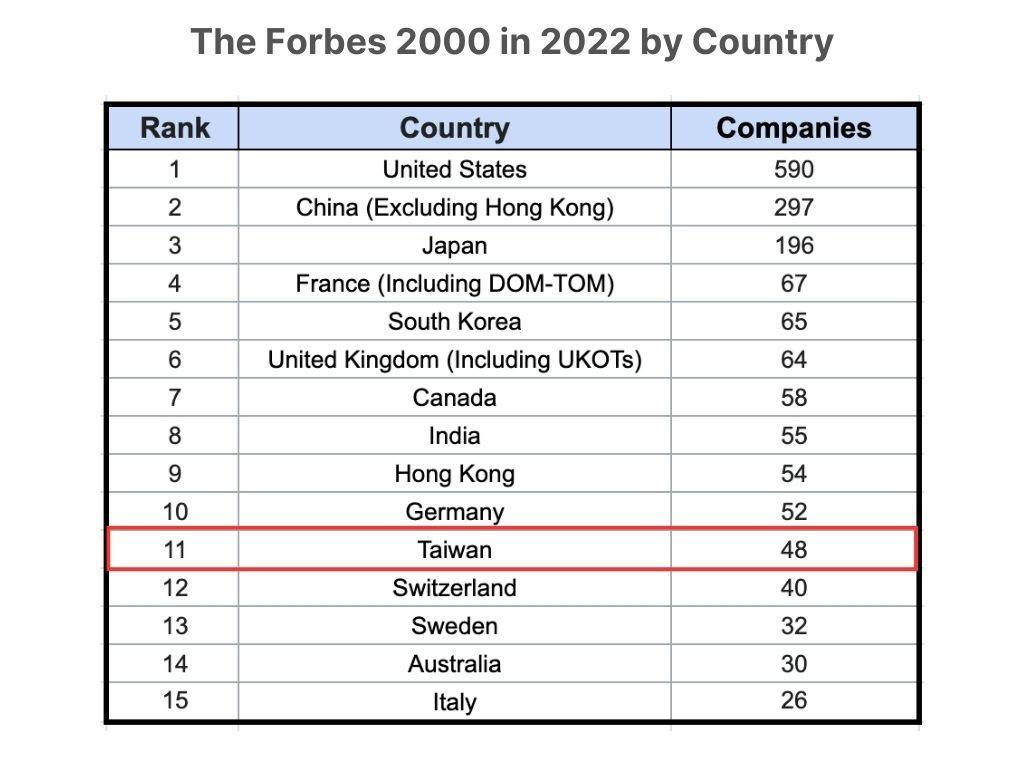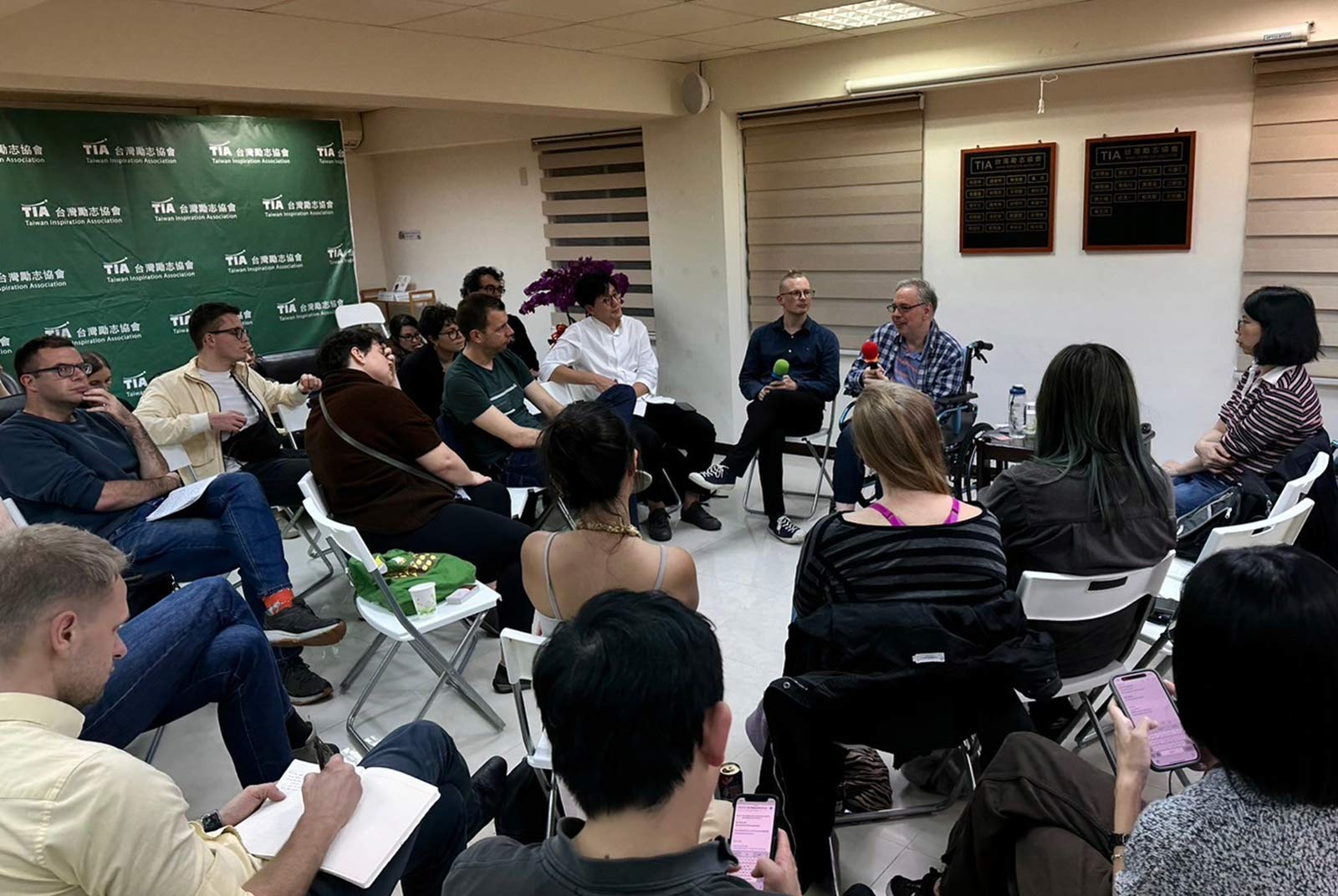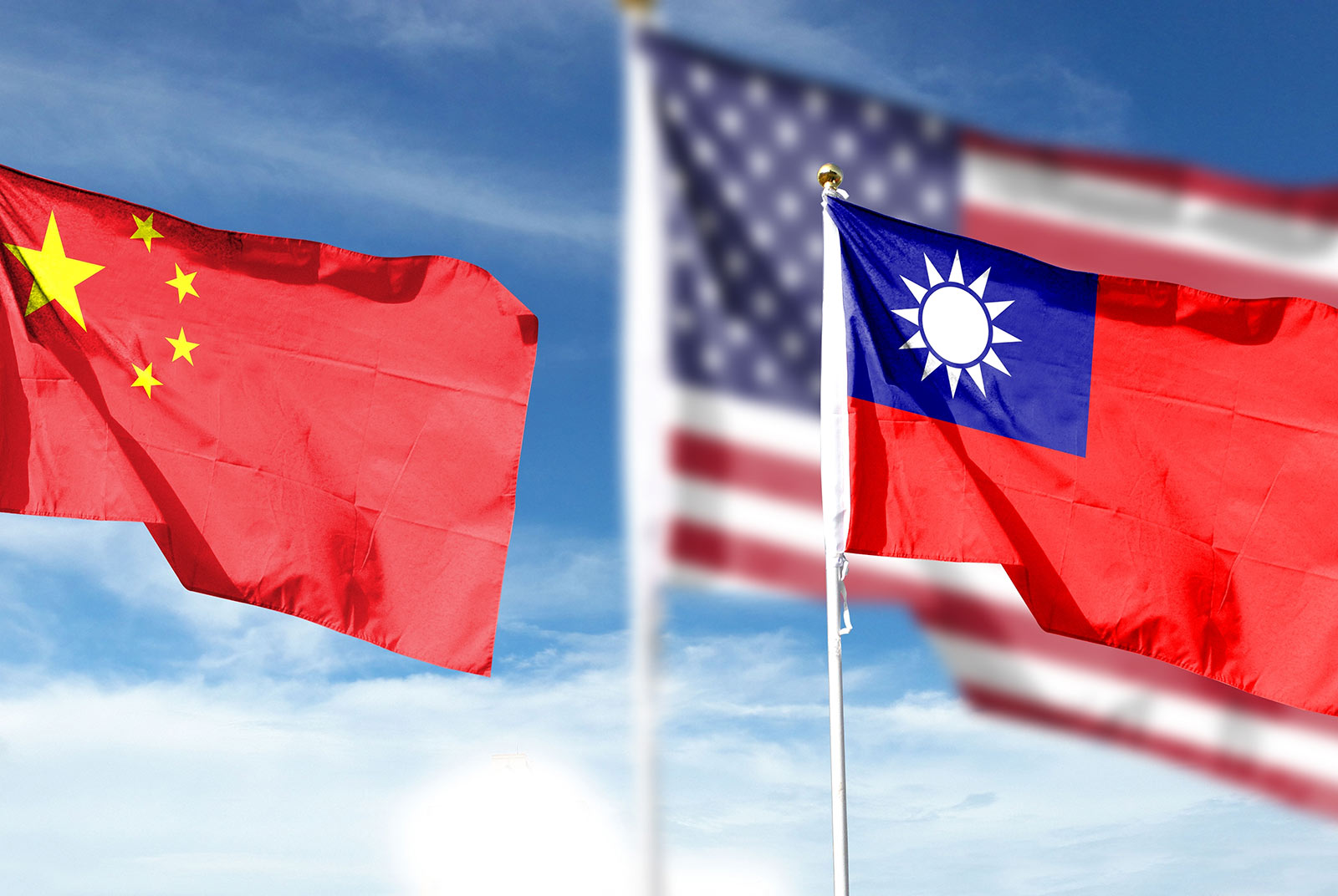Why Taiwan thinks it's a poor loser when it’s actually a success

Source:shutterstock
In this op-ed, Matthew Ryan confronts Taiwan's self-perception of economic underachievement despite its impressive accomplishments. He dissects the "ghost island" theory and probes into the reasons behind this negative outlook. Ryan sheds light on Taiwan's robust economy, technological prowess, and academic excellence, supported by a unique "Vertical Separation Model."
Views
Why Taiwan thinks it's a poor loser when it’s actually a success
By Matthew Ryanweb only
Living in Taiwan for a long time, you would notice that many locals and the media often express a sense of disappointment with their country. Taiwan is commonly thought of as an also-ran, a nobody. The boom has already passed, and the island now seems to be in stasis, with a small economy and few opportunities.
A more extreme version of this narrative is the "ghost island" theory, which has somewhat subsided in the last five years. The core of this narrative is that Taiwan is a hopeless wasteland, hurtling towards collapse, and inhabited by ghosts just going through their daily motions. It certainly is not a place for ambitious young people.
Personally, for a time, this kind of discourse affected my own mental well-being and my decision to reside and work in Taiwan. In my first job in Taiwan, my boss told me that, as an aspirational, hard-working foreigner, I was wasting my time in Taiwan, and should move to Shanghai in order to make something of myself. I often deliberated, “If mainstream society viewed Taiwan as a place without a future, then why was I here at my own volition?”
However, something changed for me as I delved a bit deeper and investigated more about how Taiwan's society and economy actually operate. I started to discover that a lot of what I had been told about the moribund state of the country is not true.
Taiwan is one of the most successful post-war economies and also one of the wealthiest places on the whole planet. From top to bottom, I discovered that this is an island of winners, achievers, and trailblazers. But why do so many consider their home a failure?
The purpose of this article was not only to gain a better understanding of Taiwan's economic situation but also to delve deeper into the sociological reasoning behind why many Taiwanese have a negative and hopeless perception of their own country. I reached out to experts from Taiwanese academia, as well as consulted current literature, in order to thoroughly explore this topic and uncover some truths about Taiwanese society.
An Island of Winners
Upon taking a deep dive into existing data, it is evident that Taiwan has been very successful. Below are some recent facts and figures that elucidate this:
Taiwan Economy
Taiwan has an extremely strong economy that has been especially buoyant in recent years. It is one of the four Asian Tiger economies (along with South Korea, Singapore, and Hong Kong) and was the best-performing during the pandemic. In 2022, Taiwan’s gross national income (GNI) per capita beat South Korea for the first time in 20 years.
In terms of GDP, Taiwan’s rankings are:
-
GDP rank: 21st (nominal, 2022); 19th (PPP, 2021)
-
GDP per capita rank: 27th (nominal, 2022); 14th (PPP, 2022)
Additionally, out of 222 countries, Taiwan is ranked 19th for imports and 15th for exports.
Taiwan Industry
Taiwan has 48 Companies in the latest Forbes Global 2000 List of Top 2000 Global Companies, the 11th highest in the world.

Taiwan also performs well in terms of entrepreneurship, with the Global Entrepreneurship Monitor ranking Taiwan as the third most optimal country in the world to start and grow a business in 2021.
Taiwan is also one of the most technologically advanced countries on the planet. In 2022, Taiwan ranked 11th out of 63 major economies in the World Digital Competitiveness Rankings.
Education
Taiwanese students are some of the most competitive in the OECD. In the World Economic Forum’s Global Competitiveness Report For Teaching And Learning 2018, Taiwan ranked 13 out of 50 countries. The most recent Trends in International Mathematics and Science Study found Taiwanese eighth-grade students to be the second best in the world for both math and science.
The Taiwan Model
I spoke with Professor Dachrahn Wu from the Department of Economics at Taiwan’s National Central University to better understand how Taiwan's economy works and why it has been so successful.
The Taiwan economic model differs from that of a lot of other countries and even other neighboring economies considered traditional competitors, as Taiwan’s economy is made up of thousands of SMEs that are focused on very specific aspects of the supply chain.
Vertical Separation Rather Than Integration
Dr Wu has coined this Taiwan’s ‘Vertical Separation Model to make a contrast to the ‘Vertical Integration’ model that most global tech companies strive for. Vertical integration is a business strategy that involves a company controlling multiple stages of its production process and supply chain to reduce or eliminate the need for external entities. By having full control over manufacturing and distribution, companies are able to streamline their operations and improve their profitability.
One notable example is Apple, which for 35 years has used a vertical business model that integrates both hardware and software. This approach means that Apple designs all aspects of a product, from the hardware to the software, including their own processors, as in the case of the iPhone and iPad.
As mentioned, Taiwanese companies are usually highly specialized and use market mechanisms to replace organizational efficiency. A specialized company has to be razor-sharp focused on staying competitive in a small area of the supply chain it is concentrated on if it is to win contracts over competitors, which are often also Taiwan companies.
As a result, Taiwanese SMEs are often very nimble, efficient, and ruthless in getting an edge over the competition, because if they cannot sell to someone higher up in the food chain, they will be erased from the market. To survive, small businesses in Taiwan are compelled to be aggressive since the government won't bail them out or save them if they fail. This contrasts greatly with South Korea’s Chaebol model, in which the whole economy is reliant on a few giant companies such as Samsung or Hyundai.
Taiwan’s economy (and also its secret sauce) is basically an ecosystem of tens of thousands of these hyper-competitive SMEs, who are often in competition with each other to get a place in larger supply chains. Many of the companies in charge of assembly for customer products are often Taiwanese (such as Foxconn or Pegatron), so this ecosystem is both domestically driven and aimed at the global market.
Disadvantages and Negative Effects of the Taiwan Model
One disadvantage of this model is that there is an almost constant drive to push down costs. This kind of aggressive cost-cutting and thriftiness has become a major characteristic of Taiwan’s SMEs.
Low margins mean that Taiwan’s SMEs have minimal budgets for R&D and are often reluctant to invest due to perceived risks. Instead, innovation and knowledge come from working with big companies like Apple, which transfer their know-how during collaborations. This learning through experience, as TSMC CEO Morris Chang put it, gives Taiwanese SMEs an edge as they "learned to dance with 400 partners," while Intel has "always danced alone" as a contract manufacturer.
While Taiwan's tech industry and the companies that make up the ecosystem are globally competitive, much of Taiwan's wealth is concentrated in this area, with the rest of society not benefiting as much. In particular, the service sector is significantly underdeveloped.
Taiwan's vertical separation model means that most companies operate on the lower end of the product value chain and have a constant drive to lower costs, resulting in fewer opportunities for competitive salaries. Many of these businesses are family-owned and lack transparent or global business practices, creating unfavorable situations for employees.
Operating on low margins, a sizeable percentage of these companies provide minimal benefits to the Taiwanese economy. Moreover, since the opening of China's market, many have shifted their focus to developing operations on the other side of the strait, where a significant portion of their revenue comes from. Taiwan's society as a whole has not really benefited from the vast wealth generated in China.
Why Taiwanese Do Not Feel Like They Live in a Successful Country
When embarking on my research for this article, I was hoping to uncover profound insights into Taiwanese society. However, what I found was something that was already obvious and disheartening: Taiwan is a wealthy and prosperous country, but its wealth is not distributed fairly.
Taiwan's economy is often contrasted to South Korea's, where only a few companies, such as Samsung, dominate the economy. While Taiwan's landscape of thousands of small and medium-sized enterprises (SMEs) may lead to the perception of a more dynamic economy with opportunities for entrepreneurial success, the reality is that Taiwan is not that much better off than Korea. For instance, Hon Hai revenues alone account for nearly 14% of Taiwan's GDP.
While there may have been a golden age for SMEs in the 70s and 80s, it is now difficult to start a successful small business in Taiwan and even harder to compete with established larger enterprises.
The elephant in the room for understanding the underlying pessimism in Taiwan is the wild level of unchecked property speculation that has made it near impossible for young people to purchase a house. Taiwan has some of the most expensive housing in the world, while at the same time, it has some of the lowest wages among developed countries. Many young people feel despondent, and they also feel that society has let them down.
According to Anthony Chang, a retired Finance professor at Shih-Chien University, Taiwan has been suffering from a land scarcity issue since the early 1990s. However, the problem is not due to a lack of land but rather a lack of planning. There is too much speculation, which allows people to purchase land.
Returning to the topic of consumption, the wealth disparity in Taiwan makes it difficult to take a macro view of the whole situation. While wages are still low for many, those at the top of the pyramid have significant spending power. The average private consumption as a percentage of GDP in the OECD is 60%, but in Taiwan in the last quarter of 2002, it was only 47.1% (source). It's clear that Private consumption is grossly lopsided toward the affluent in society.
Luxury industry revenues serve as a good indicator of the comparative spending power of Taiwan's wealthy. In 2022, annual revenues reached NT$259.2 billion (US$8.6 billion), making it one of the largest luxury markets in the world. Per capita, luxury sales in Taiwan are US$366, higher than those in Korea ($325) and Japan ($262).
The reason why people don't feel that they live in an economic powerhouse is simply that the wealth doesn't trickle down to them. Taiwan's economy is dominated by a lot of stealth wealth generated by the aforementioned SMEs that few have even heard of, making it difficult for many people to comprehend how rich the country truly is. Consumption is often similarly hidden, giving the impression of a less ostentatious wealth gap than in cities such as Hong Kong or Singapore. This has resulted in many Taiwanese being unaware of how wealthy and succesful their country actually is.
Taiwan Needs a Software Upgrade
In terms of hardware, Taiwan has all the components of a successful country, including a wealth of resources, advanced technology, strongish institutions, and a decent education system, especially in regards to science and engineering. However, in my opinion, the key issues facing Taiwan are on the software side, and I mean by this, there are mindset problems that prevent all the components coming together. People are bombarded by the message that Taiwan is a struggling developing country, only a step away from being poor, which has created many negative behavioral loops.
Taiwanese people tend to think that they are failing, which results in high savings and reluctance to take risks or invest, both at the individual and business levels. Taiwan's business sector has become too focused on quick wins at the expense of long-term planning. By not recognizing itself as an advanced economy, Taiwan often undermines its own potential for success.
This can be highlighted with another interaction with the boss I mentioned earlier, where I asked him in passing “why does the Taiwan government not invest much in sports, both national teams and at the grassroots level?”. His reply was, “We are still not wealthy, we must focus more on the growing the economy”. In his mind sports was luxury for rich countries like the US or those in Europe to invest in.
There seems to be a clear shared perception of Taiwan's standing in Asia, which is behind advanced countries like Japan and ahead of Southeast Asia. Expectations are in turn kept low; Taiwanese don’t really expect Taiwan to ever be on a level with Japan.
However, this is a very wealthy country with all the components to compete with the most advanced economies, and the average Taiwanese person should demand more. They should also try to understand how their economy works and how it really compares with the rest of the world.
Although it is unrealistic for Taiwan to overnight offer the same level of social equity and benefits as somewhere like Scandinavia, the country can give a fairer shake to the average person, especially in terms of wages and quality of life.
Many SMEs are only surviving because they are subsidized by the government, whether through low taxes, lax regulation, or most likely low wages. Companies that can only survive by squeezing workers do not benefit the economy as a whole and should be put to rest.
Moreover, the government can do more to promote and support service industries. Taiwan has world-class talent that could support a stronger services sector and create greater and more diverse employment opportunities.
(This piece reflects the author's opinion, and does not represent the opinion of CommonWealth Magazine.)
About the author

Matthew Ryan is a communications consultant with extensive experience in conducting consumer and market research in Taiwan and other Asia markets. He is currently based in Taipei, where he runs an agency assisting Taiwanese technology companies in expanding their global impact through exposure to overseas markets. Matthew can be reached at [email protected]
Have you read?
- Landmark U.S.-Taiwan Trade Initiative will lead to broader agreements
- US-Taiwan trade talks and the need for speed
- China vs. Taiwan: The battle for diplomatic allies
Uploaded by Ian Huang






